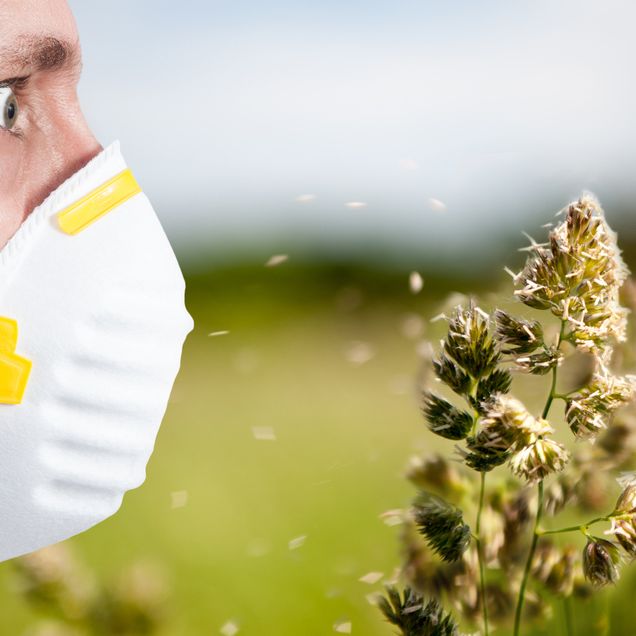The best medicine for allergies is avoidance. And there’s no one better than an allergist to tell you how to avoid your triggers (like flowering trees) so you can be free of symptoms without medication.
From uncovering hidden sensitivities to finding the right natural remedies for you, your allergist can help you live a healthier, more comfortable life. Here are the best reasons to make an appointment.
Related: Control Allergies Naturally
1. You Have a Cold That Just Won’t Go Away
A cough from a cold or virus should clear up in a couple weeks. But if your cough persists or shows up consistently in a pattern like every night in bed or each spring, it’s likely caused by an allergy, says Neeta Ogden, M.D., an allergist in New Jersey and a spokesperson for the American College of Allergy, Asthma & Immunology
The same goes for headaches, Dr. Ogden says. “Headaches can be a sign of a sinus involvement from allergies.”
Even dull headaches and repeated fatigue can be symptoms. Your allergist can help you determine if allergies are involved and help you get relief.
2. You Get Diarrhea After Your Favorite Meal
Your allergist can help you separate a true food allergy from a food intolerance.
With a food allergy, your body mounts an immune response to something that you ate—usually immediately or within 2 hours. Rashes, hives, swelling, and trouble breathing are all signs of a food allergy.
Food intolerances are harder to pick out. Symptoms usually start 3 hours after eating and can range from mild nausea to bloating to diarrhea.
Related: 4 Foods to Avoid If You Have Spring Allergies
Knowing what foods you’re allergic to can help you avoid trigger foods. You can also boost your immune system by eating certain types of foods.
3. Aspirin Doesn’t Seem To Work On You
Over-the-counter medications can make a huge difference for people with allergies, but how do you know which products to choose—and if they’re working?
“There are so many options available,” says Dr. Ogden. “I find people don’t know how to use them properly, so they end up getting worse.”
Your allergist will help you decide which OTC medications work best for you and your symptoms. He or she can also teach you how to use meds properly so you get their full benefit when your favorite spring flowers are bothering you.
4. Your Eyes Are Itchy In the Morning
If you wake up stuffy with itchy eyes or frequently cough in the middle of the night, there’s a chance you’re allergic to the dust mites that live in your bed.
But all is not lost: Your allergist can help you determine if you’re allergic to dust mites and teach you how to sleep comfortably again.
Related: Why Your Sheets Are Dirtier Than You Think
5. Antibiotics Make You Feel Worse
Penicillin is one of the most common drugs people are allergic to, according to the Asthma and Allergy Foundation of America. While up to 10 percent of the world’s population may have a drug allergy, many people are unsure of what medications they’re allergic to, according to Dr. Ogden.
Your allergist will administer a quick skin test in the office to determine if you’re allergic to penicillin or other antibiotics.
6. You Suspect Something At Home Is Making You Sick
From the dust under your sofa to animal dander in the carpet, indoor allergens are lurking all over your home—and it’s impossible to get rid of them completely.
Your allergist can help you determine what you’re reacting to. Dust mite droppings, animal dander, cockroach droppings, and mold are some of the most common causes of indoor allergies.
From offering cleaning tips to recommending special products like allergenic mattress covers, your allergist can help you reduce your exposure and alleviate your symptoms.
This article was originally published by our partners at RodalesOrganicLife.com.













